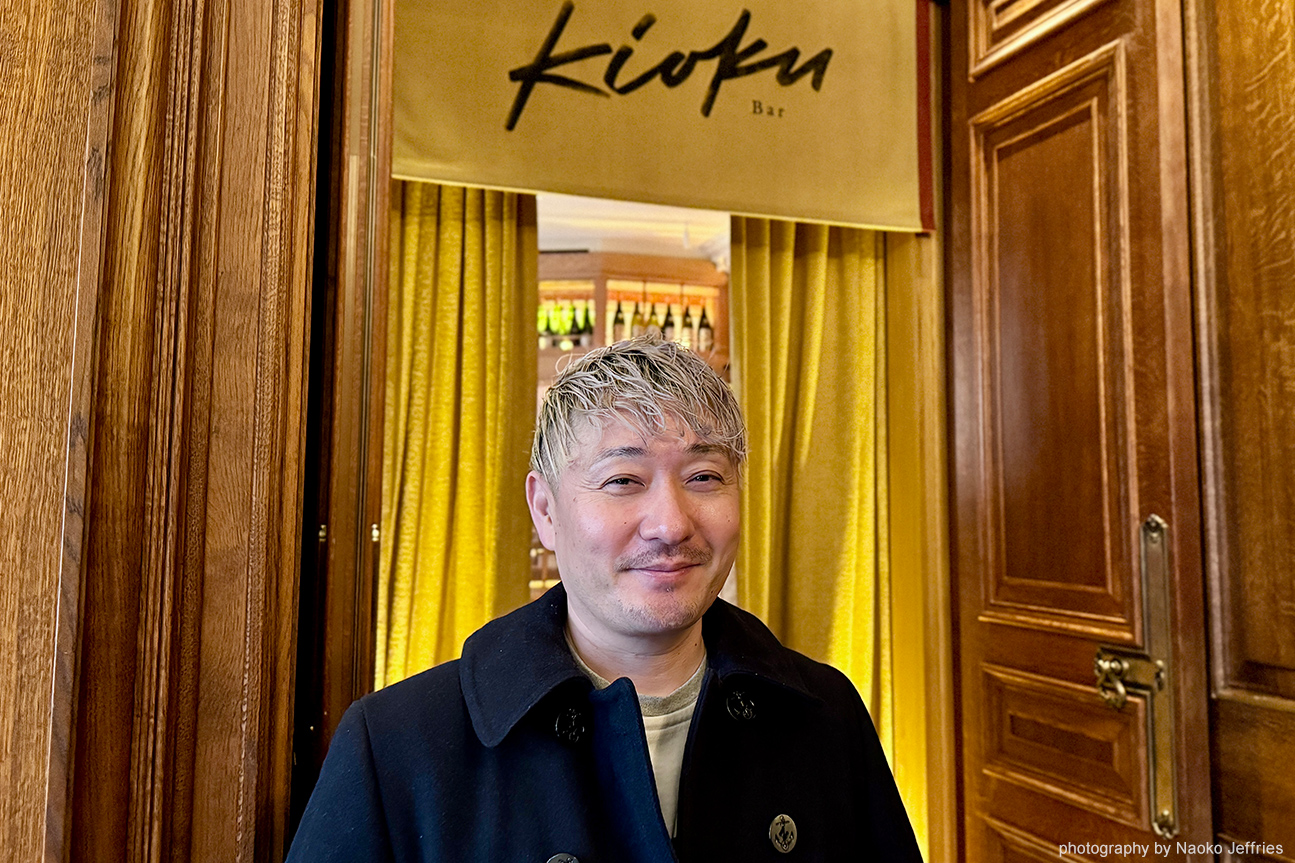
Apio, a popular Japanese Supermarket in Shanghai Introducing a diversity of Japanese food to Chinese consumers
As more and more Chinese people have the experience of traveling to Japan, they are becoming more and more familiar with Japanese culture. Japanese food has also infiltrated the daily life of Chinese people. Now, they don’t have to go to Japan to buy authentic Japanese foods. They can find them in Japanese supermarkets in China. Apio (Formally Apita, changed to Apio since November 11th , 2024) is one of the most popular Japanese supermarkets in China.
Apio, which was previously an international branch of UNY Co., Ltd. that operates a chain of supermarkets in Japan, entered China in 2014 and currently has two stores in Shanghai, China. Even though it was acquired by BBK, a large retail group in Hunan Province, China in 2020, it continues to retain its "Japanese" origin and is well-known for the variety of imported food from Japan. Tokuda Ryo, the general manager of Apio shared with us how Apio introduces and promotes Japanese food in China.

Mr. Tokuda Ryo, General Manager of Apio
Apio's first store is located in Gubei area, an affluent residential area best known as an enclave of foreign expatriates, including Japanese, Korean, European and American, in Shanghai. The store has an entire independent section of imported food from Japan, selling confectioneries, snacks, seansonings/condiments, ramen, rice, beverages, alcohol, etc. It is very rare to find a supermarket with full range of imports from Japan even in Shanghai. "Japanese Supermarket= Apio. We have adhered to the positioning for 10 years. It is the meaning of our existence. “Tokuda emphasized.

Section of imported food from Japan in Apio
For the vast majority of Japanese people living in Shanghai, Apio is certainly the main channel for purchasing Japanese food. However, the majority of customers overall are still Chinese. During the Covid-19 pandemic, Apio ensured a steady supply of food and daily necessities for the residents of the neighborhood and provided home delivery service. By doing so, it built a deep sense of community with the neighborhood. Therefore, even though several supermarkets, including local and international ones, in the neighborhood have closed down due to economic downturn, Apio has been able to remain resilient with steady growth.
"Currently, our core customers are residents of the neighborhood and those who have studied, worked, and traveled in Japan. The ratio of Chinese to Japanese customers is about 9:1," said Tokuda.
According to Tokuda’s observation, Chinese consumers think that food imported from Japan is safe and reliable. Many customers will choose Japanese brands, especially when purchasing infant formula, supplements, and children's snacks. " We act as the gatekeeper to ensure the safety and quality of products. Therefore, most of our customers trust us. They believe the products sold in Apio are safe. " Tokuda said proudly.
Speaking of the characteristics of Chinese consumers, "They think highly of food safety more than Japanese in certain aspects," said Tokuda. "They value the freshness of ingredients and want to check the original appearance of ingredients with their own eyes. For example, many Chinese consumers will not buy meat marinated in sauces or pork chops coated with bread crumbs because the original color of the meat is covered. This is very different from Japanese consumer habits."
In addition, Tokuda believes that in the past Chinese consumers tended to regard products as having more value when they are more expensive. However, they have become savvier now. They pursue cost-effectiveness, which means they want cheap price but good quality. Under this trend, more and more Chinese consumers tend to choose Japanese foods produced in China by Japanese manufacturers, which are cheaper but with similar quality, over imported products.
Snack and confectionery, accounting for nearly a 60% share of food imported from Japan, are the best-sellers in Apio. When being asked what Chinese love to buy, Tokuda said that as more and more Chinese tourists travel to Japan, they have an understanding of what products are popular in Japan. The hot-selling products in Japan are also popular in China. For example, well-known Japanese brands, such as Meiji, Lotte and Calbee, have outstanding sales performance. The popular souvenir Shiroi Koibito (White Lover) from Hokkaido has been a hot-selling product in Apio. To allow Chinese customers to buy these popular souveniers without travelling to Japan, Apio even established a specialty store called “Haneda Selected Shop”.

Popular Japanese souvenir “Shiroi Koibito (White Lover)”
Japanese seasonings, such as Ichimi Togarashi, Shichimi Togarashi, and Wasabi, are popular for those who are familiar with Japanese culture and try to cook Japanese cuisines at home. Convenient instant rice and Japanese-style rice cakes are always the top two best-sellers. With the popularity of Japanese Izakaya (a casual place for after-work drinking), Japanese beer is recognized by Chinese people and the sales are growing.

Japanese seasonings are popular in China
In addition to imported food from Japan, Apio's Japanese style deli is another prominent feature. From Japanese snacks such as Yakitori, Takoyaki, Croquette, Three Color Dango and Tonkatsu Sando, Japanese bento such as Karaage, Unagi and Tempura, to Japanese desserts such as Daifuku and Crepe, these foods with Japanese flavor allow more Chinese people to experience authentic Japanese food culture. Many young customers post photos of these food with attractive appearance and good taste on SNS, making it a trend on internet.
In order to ensure the quality of food and keep the authentic Japanese fumi (taste-aroma), Apio cooperates with well-known Japanese brands, such as Nissin and Meiji. For example, Agemono (deep-fried food) sold in Apio’s deli is fried with Nissin’s oil and some Japanese-style desserts are made with Meiji’s yogurt. Apio publicizes these detailed insights through SNS to enhance the recognition of Chinese consumers toward Japanese food and Apio. "We have a team responsible for social media marketing, covering all mainstream Chinese social media platforms such as Reds, TikTok and Wechat. In addition to information such as new product release and discount, we will focus on the promotion of features and events of Japanese food manufactures.” said Tokuda.
Apio also cooperates with local governments in Japan to promote local specialties and foods. Some successful events, such as Kyushu Food Fair and Ishikawa Fair, have been held in the past. In the future, Apio plans to organize these kinds of events frequently to attract more Chinese customers.
In addition to foods imported from Japan sold in the supermarket, Apio also introduces diversified Japanese cuisines and restaurants to Chinese consumers through a variety of tenants in its food court. At present, there are ramen, tempura, hamburger steak and other Japanese delicacies available in Apio’s food court. With Apio’s support of advertising and its ability to attract customers, most tenants have a stable sales footprint. Among them, Ebinoya Tempura has gained popularity and opened 3 more stores in Shanghai.
According to Tokuda, it has become more difficult to import food from Japan to China. "Compared with last year, the number of SKUs of imported food from Japan has decreased by 30%. The situation is very severe for us. " Tokuda said. In the future, Apio plans to develop its own private-label brand and import food from Japan directly without going through other importers or distributors. “We plan to import fast-moving categories, such as beverages and snacks, directly to secure inventory level and ensure low price.” said Tokuda. Apio also plans to introduce more exclusive products to distinguish itself from competitors. “We used to import a well-known Wagashi (a traditional Japanese confection) called “Nagoyang”, which has not been sold in China before, directly from its manufacturer “Pasco” from Nagaya, Japan. Our customers loved it and the products sold out quickly.” said Tokuda.
As the leading Japanese supermarket in Shanghai, Apio devotes itself to promoting Japanese food culture in China through cooperation with Japanese food manufacturers and local governments through joint events, promotions and SNS advertisements. In addition, it is making great efforts in maintain even expanding the quantity of food imported from Japan to provide variety and diversity to Chinese consumers. "Apio will adhere to the positioning of “The” Japanese supermarket,introducing more unique and high-quality Japanese food to Chinese consumers." Tokuda stated with determination.






